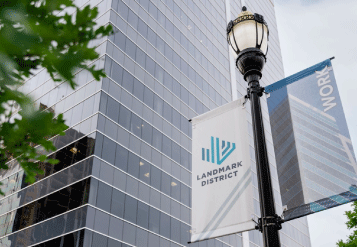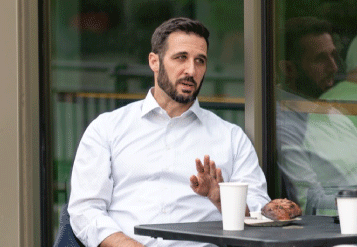Financial Planning Victoria
Next to your health, financial planning decisions might be the most important choices you make. Some of the common financial planning questions to answer in this process include:
- How much are you putting aside for savings each year?
- How much are you investing in your education/career advancement?
- How much money should you spend on your house?
- When should you stop working?
- Should you invest in RRSPs, TFSAs, or something else?
- Should you pay down your mortgage or put that money into investments?
In Canada, the CPP is meant to provide you with 25% (growing to 33%) of your income needs in retirement. It’s up to you to provide the rest. A financial plan provides clarity on how your decisions today will affect you 20 or 30 years down the road and give you greater peace of mind.
Money is just a resource, a tool no different than a hammer. Through our years of expertise in financial planning, Navigate CPA can help you build the the best future and live better.
Our Process
Our financial planning process is very simple: first, we map out your choices. This is through a detailed Excel model that captures all of your small choices and combines them to show you where you’ll be at key points in your life.
Then, we make some estimations about your income, inflation, and investment returns, and the model returns what your income and assets look like at your retirement age and through your retirement. This gives you a complete breakdown of what your financial future could look like.
Here are 2 common stories from clients that offer insight into some of the common mistakes we see in financial planning:
Mike the Educated Saver
Mike is an engineer. He graduated from school in his early 20’s and began working right away. He was always diligent and knew that saving and education were important. He often went without spending in order to save for retirement.
His goal was to save 30% of every dollar he ever made.
He married in his early 30s and had two children. In order to pay for everything, he worked harder and harder through longer and longer hours at the office.
By age 40, he had accumulated $1.5M in invested assets and had nearly paid off his home. He continued working very hard. While he did enjoy his job, he missed many family events from spending time at work.
By age 65, his assets had grown to over $5M, and he had no debts. As he entered retirement, he realized that maybe he didn’t have to work so hard for so many years and wished he had taken more time to be with his family. He also wished he had known how quickly his assets accumulated.
The time value of money is often hard to picture, especially when it’s inside of a tax-sheltered vehicle like a RRSP. Saving too much can actually mean working too hard and missing out on having fun with friends and important life events with your family.
Suzy the Hardworking Spender
Suzy is a realtor. She’s always had a work hard/play hard mentality. Growing up was a challenge as her parents split when she was young and money was tight. Suzy yearned for nice clothes and fancy vacations—she felt like she missed out on that so far in life.
In her late 20s, she finally started earning some significant money from work, but by the time the end of the year came around, there was never anything left.
As she entered her 30s she bought a gorgeous house and a brand new Mercede-Benz—both of which she loved dearly. She married in her late 30s and started a family soon after.
She quickly found her house was too small for her burgeoning family and they needed more space. Suzy decided to buy a house with a $1.3M price tag and got a mortgage of $800k. Just because she had kids didn’t mean she couldn’t vacation anymore, and she and the family vacationed in the south every winter and they regularly travelled with a truck/trailer in the summer.
Saving was never really on Suzy’s mind as she viewed life as an experience meant to be enjoyed. At age 50, Suzy had driven over 5 different vehicles (all brand new) since she thought of newer cars as more reliable. Her savings weren’t where she wanted them to be, but she figured she still had time.
At age 55, Suzy realized she needed to be more serious about her savings and started saving $50k/year.
By age 65, Suzy still had roughly 300k left on her mortgage and her investments were worth about 900k. When she talked to a financial advisor, she was told she should sell her house and move into a tiny condo and/or consider working until at least at 70, if not age 75. She was shocked and thought “How could this be right? I’ve worked hard my whole life!”
Unfortunately, many people underestimate how much they need to be saving each year in order to enjoy a comfortable retirement. Furthermore, there’s a lot of subjectivity in what one person considers “comfortable.” To avoid any surprises, it’s crucial to do the math to see if what you’re saving will produce an income large enough to support you in retirement.
Our financial plan does exactly that.
Free Consultation
Set yourself up for freedom. Find the right opportunities to save money and earn more income for you and your business by setting up an appointment with one of our accounting professionals.

Corporate Tax Planning
Corporate Tax Planning is the process of finding the optimal structure of your business to reduce taxes over the life of your business. Tax rules are constantly changing and staying on top of them is crucial.

Personal Tax Planning
Personal Tax Planning is arranging your income sources (i.e rental properties, employment income, business income, etc.) in a way that minimizes taxation and is in compliance with tax legislation.

Cash Flow Forecasting/Budgeting
Not sure if you’re taking your business in the most profitable direction? Find out with our help if that’s the case and how to manage your profits and expenses to get there.

